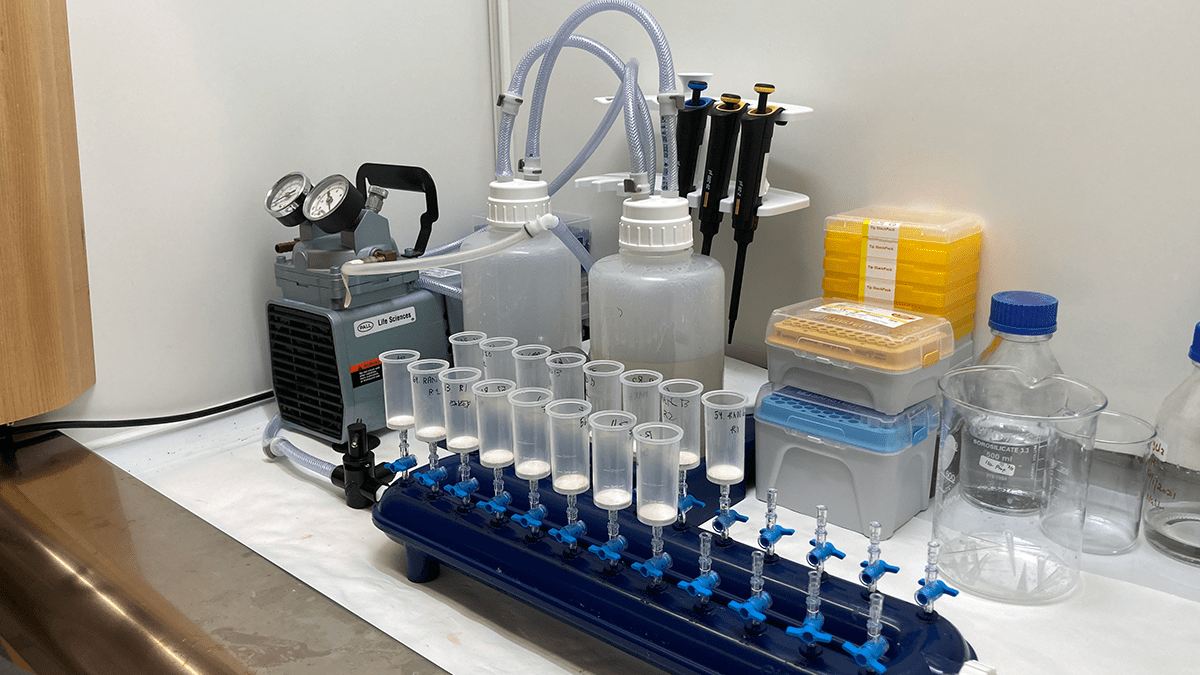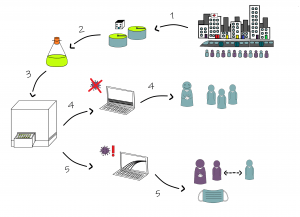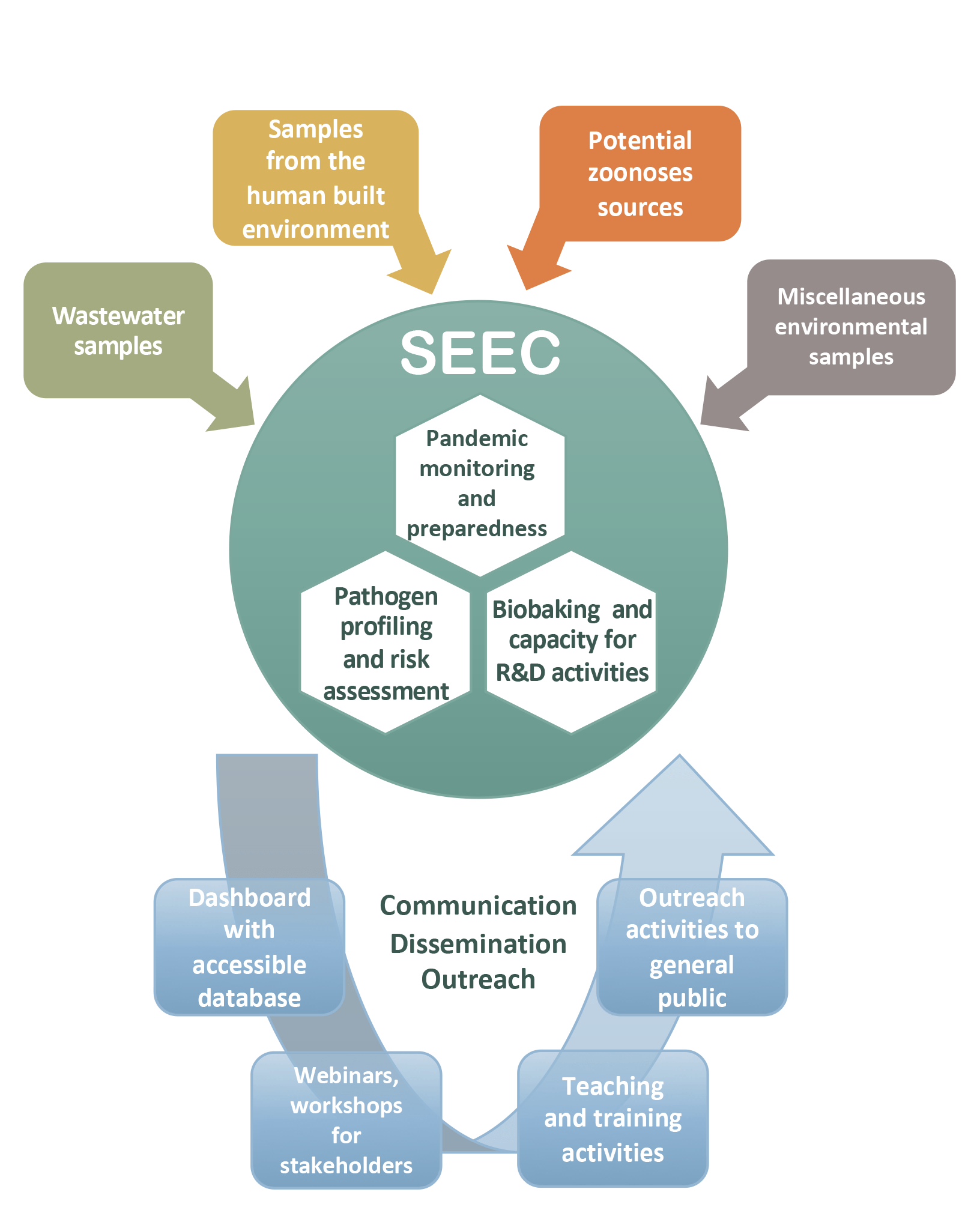Swedish Environmental Epidemiology Center
The health status of human populations is reflected in chemical and biological imprints left on their environment. The Swedish Environmental Epidemiology Center (SEEC) measures and deciphers these environmental health signals to facilitate response to current and emerging pandemics, improve public health and assist epidemiological research.


Pandemic Preparedness for Environmental Pathogen Detection
SEEC is a national capacity-building center that bridges the current gap between epidemiology and environmental assessment. It provides for rapid and effective response to detected pathogens as well as population level epidemiology. SEEC also stands for the standardization of molecular and experimental methods for continuous assessment of known and emerging pathogens of concern in Sweden.
Our aim is to provide:
- Continued and extended wastewater-based monitoring of the ongoing Covid-19 pandemic
- Pathogen profiling of the built environment and expanded sampling capacity
- Help for infection transmission risk assessment in public places
- An accessible repository of environmental samples of public health relevance
- Capacity for environmental epidemiology research and development.
SEEC, a multidisciplinary environmental epidemiology center
Building on capacities and knowledge of four universities

The Covid-19 pandemic showed that Sweden has a gap between epidemiology and environmental assessment. To bridge this gap researchers from four Swedish universities (SLU, KTH, KI and Uppsala University) initiated the establishment of SEEC. SEEC provides a broad capability and network within pathogen detection, viability assessment and predictive modelling. SEEC encompasses various nodes and support structures for quantitative, genomic and viability analyses.
Nodes
- SLU (Wastewater, Water, Surface, Air & Viability testing)
- Researcher: Maja Malmberg
- Researcher: Anna J. Székely
- Researcher: Klas Udekwu
- Lab engineer: Nahla Mohamed
- KTH (Wastewater & Sludge)
- Researcher: Zeynep Çetecioğlu Gürol
- Lab engineer: Mariel Perez-Zabaleta
- Karolinska Institutet (Air & Viability testing)
- Researcher: Antonio Gigliotti Rothfuchs
- Lab engineer: Nuno Ramos Rufino de Sousa
- Uppsala University (Statistical modelling)
- Researcher: Stefan Engblom
Support
- Biosafety Level 3 laboratory (BSL3) at Biomedicum/KI
- Zoonosis at SLU Faculty of Veterinary Medicine and Animal Health
- Clinical Epidemiology at the Clinical Hospital of Uppsala University
- Environmental sample repository at KI, KTH, SLU
- Wastewater technologies at KTH
Pathogen profiling services and pandemic monitoring
Unique tool set for environmental sampling and analyses of health related markers

SEEC provides weekly data on the wastWastewater-based Epidemiology: SEEC actively monitors wastewater levels of the virus responsible for Covid-19 disease, SARS-CoV-2, in various municipalities of Sweden, covering more than 25% of the population. This data is continuously updated and freely accessible on the Covid-19 Data Portal of Sweden.
SEEC offers analysis of diverse environmental samples (e.g., water including wastewater, surface samples, air samples), for presence of pathogens, using both targeted approaches such as qPCR or amplicon sequencing as well as unbiased metagenomics approaches.
Built Environment Epidemiology: SEEC is involved in the worldwide analysis and profiling of built environment surfaces and air, with intermittent sampling of air in clinics, schools, subways, and indoor malls. Through an extensive network, datasets, sampling methods and analysis pipelines are readily available for comparative studies of environmental signals.
SEEC also offers support in experimental design, sampling, logistics, storage and other monitoring relevant processes.
For more information contact: